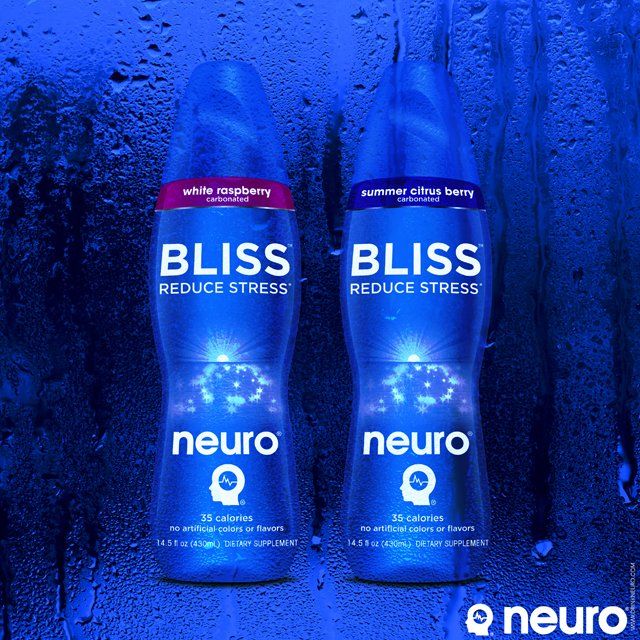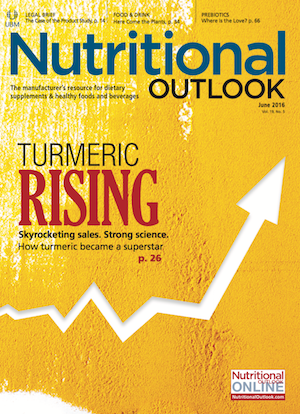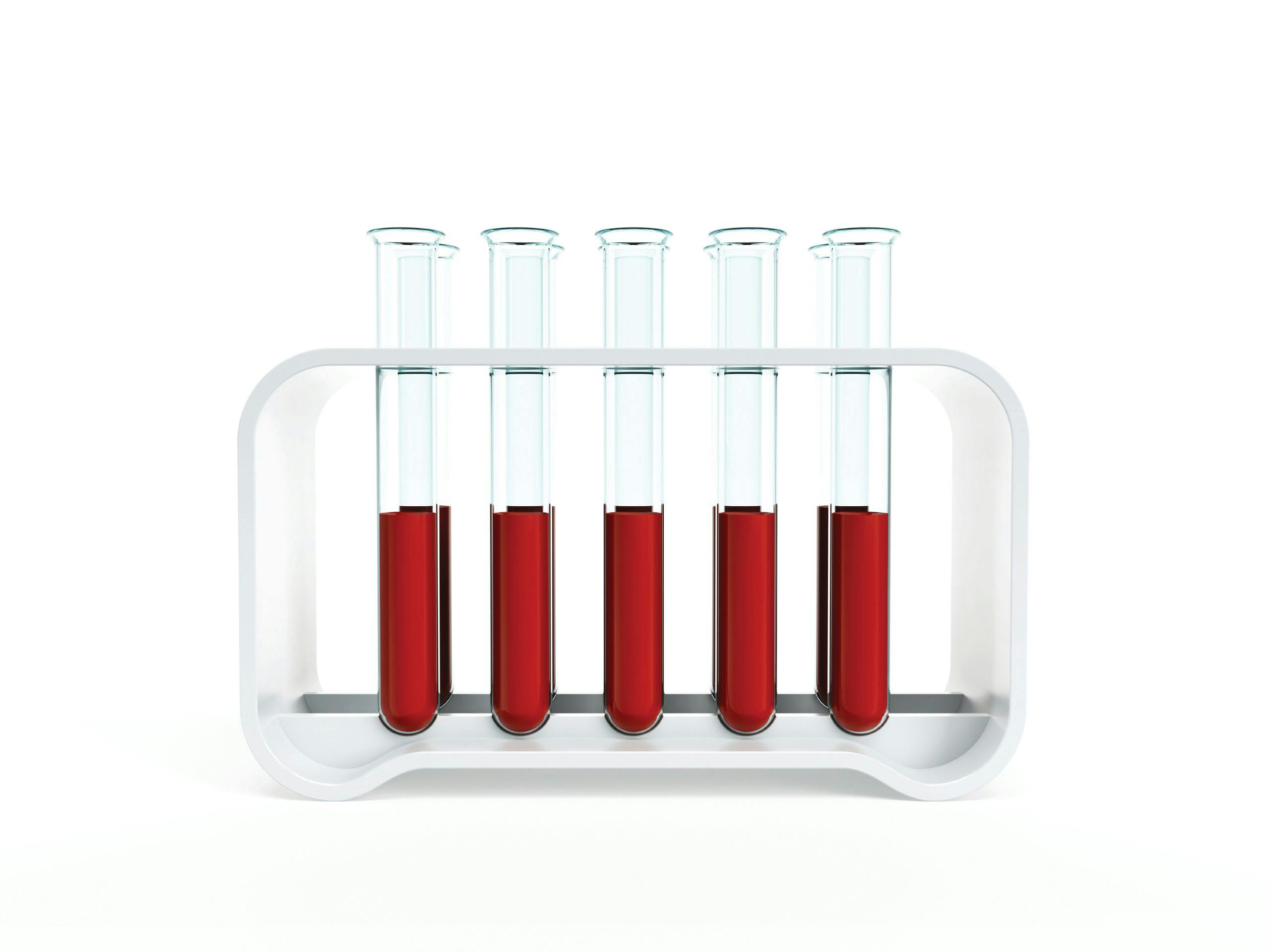Red Flag: Dietary Supplement Makers, Do You Need a Finished-Product Study?
Why a consumer-protection case out of Santa Monica, CA, could be a red flag.
Photo courtesy of Neurobrands

Like any industry making health-related claims, dietary supplement makers are beholden to FTC requirements to support any marketing claims with “competent and reliable scientific evidence.” Supplements, however, are not held to the same substantiation bar that drugs are, and thus supplement makers are allowed to rely on numerous forms of “competent and reliable scientific evidence,” including studies on individual ingredients they may find in research literature. In short, they are not required to perform a study on their finished product.
In April, however, a court injunction handed to a Santa Monica, CA–based supplements brand, Neurobrands LLC, ordered the firm to conduct at least one human study on each of its four liquid-supplement products: Neuro Sonic, Neuro Bliss, Neuro Daily, and Neuro Sleep. The civil complaint, brought by the Santa Monica City Attorney’s office and the Los Angeles County District Attorney’s office, took issue with a number of marketing claims Neurobrands made, including “supports memory,” “strengthens your focus and creativity,” “provides fuel for the brain,” and “promotes healthy aging.”
Adam Radinsky, Santa Monica’s chief deputy city attorney for consumer protection, says that during the city and county’s investigation, the studies Neurobrands supplied as evidence were ingredient studies the company had culled from the literature. “The studies were studies that were done on various ingredients for the most part that were found in the various drinks,” Radinsky tells Nutritional Outlook. Radinsky did not disclose more details of the studies themselves, but said, “There’s a wide variety of evidence that the company presented, and we concluded overall that it did not sufficiently back the claims that were being made.”
The settlement Neurobrands agreed to in April requires that, within three years, the company either conduct one human study on each of its finished products or discontinue selling that product. Specifically, the orders say, “Defendant will control the design and implementation of these studies and shall provide the published results of all such studies to the People’s counsel.” The injunction’s other stipulations include requiring the firm to re-market some of its products as conventional drinks instead of dietary supplements, as well as to pay $500,000 to the city and county.
So far, Neurobrands-who, in agreeing to the settlement, does not admit to liability or wrongdoing-has published one product study. The company began the study on its Neuro Bliss relaxation product in 2012, before the initial investigation began in 2013. Nutritional Outlookreported on those preliminary study results in July 2015, and the study is now published in the journal Nutrients. In addition, Neurobrands reports it has completed another study, on Neuro Sonic, with results currently being analyzed by noted Canadian contract researcher KGK Synergize. The firm has two additional clinical trials underway, including one on Neuro Sleep.
Finished-Product Studies
This case raises the crucial question of whether or not companies are required to perform studies on their finished products in order to back their claims. First are foremost, by law, the FTC does not require studies on finished products, and the agency does permit studies on individual ingredients as substantiation. “FTC definitely allows ingredient studies to be used to support claims, with the caveat that the study still has be relevant to the product’s specific claim that you’re making, and also they have to show that the absence or the addition of other ingredients wouldn’t affect your ability to rely on that ingredient study,” says Rend Al-Mondhiry, Esq., associate general counsel, Council for Responsible Nutrition (CRN; Washington, DC).
When asked whether there are any laws that require a company to have a finished-product study, city attorney Radinsky says, “I can’t point you to a particular law that says it’s illegal to advertise something if you don’t have a study on that product.” He does point to FTC’s official “Dietary Supplements: An Advertising Guide for Industry," which gives examples of times when individual ingredient studies may not be sufficient to prove a product’s efficacy-for instance, as the guidance states, if “the combination of multiple ingredients might result in interactions that would alter the effect or safety of the individual ingredients.” In this case, FTC’s guidance says, “A better approach would be to investigate the safety of the specific combination of ingredients contained in the product.”
Radinsky says, “Even in the absence of a black-and-white law that says you need a study on the exact same product, there certainly can still be problems.” In the case of Neurobrands, Radinsky would only disclose that the company “did not have sufficient evidence to back the claims under the federal standard” of competent and reliable evidence.
STORY CONTINUES ON PAGE 2
FTC's Standards
In fact, the FTC allows supplement companies to leverage numerous types of scientific evidence as substantiation, as long as the evidence is deemed by experts to be competent and reliable. It’s a standard that legal courts continue to uphold. Among the latest court decisions on the matter, Kristi Wolff, special counsel for the law firm Kelley Drye & Warren LLP (Washington, DC), points to the recent contempt case between the FTC and probiotic-supplement maker Bayer Corp over Bayer’s Phillips Colon Health supplement. Last fall, the courts ruled for Bayer, with the New Jersey federal district court judge citing FTC’s own guidance which affirms that supplement firms are allowed to rely on a “totality of evidence,” including animal studies, in vitro studies, epidemiological studies-and, yes, ingredient studies. In the case of Bayer, the company presented more than 100 scientific articles it cited from scientific literature to supports its product claims.
Red Flag?
Because this is a settlement, CRN’s Al-Mondhiry notes that the parties involved “can negotiate the terms any way they want.” But it’s still worth asking whether the stipulation for finished-product studies is a red flag-beyond FTC requirements-for the supplements industry at large.
Of the settlement terms, Kelley Drye’s Wolff says, “It is remarkably broad in that it addresses claim substantiation, formulation, labeling, notice to vendors, and product shelf placement. I am not aware of a single FTC order or FTC action that covers the same scope.”
It’s also worth pointing out that Neurobrands’ claims such as “supports memory,” “enhances mood,” and “daily dose of immunity” are not are unusual in the dietary supplements structure-function claims space. Chris Noonan, scientific and regulatory advisor for Neurobrands LLC, says, “Anyone with even a rudimentary understanding of the science behind dietary ingredients would recognize those claims as fairly benign.” Noonan adds, “We have three food and drug law firms advising the company. We have a legion of scientific advisors guiding our claim substantiation. Compared to a majority of marketers in the dietary supplement industry, I think you could agree these claims are fairly conservative.”
As for the ingredient studies the company has in hand, Noonan says that “anyone fluent in basic science would understand there is significant scientific evidence in support of such ingredients as caffeine, L-theanine, melatonin, vitamin C, vitamin D, magnesium, selenium, and zinc.” He says, “Even before pursuing clinical research on the products themselves, the company ensured that, at a minimum, the ‘anchor’ ingredients (anchoring the products to efficacy) matched the dosage amounts studied in clinical research.”
Nevertheless, Noonan says Neurobrands decided to enter into settlement to avoid the further pain and cost of a jury trial. “After three years of negotiations, and ultimately with the disregard for the Neuro Bliss clinical trial evidence, it was apparent that no amount of evidence would suffice and only a jury trial would ultimately settle the dispute. Layer in the resources of two separate district attorney’s offices plus the need to publically justify their time, the company decided to settle and move on. Time will tell if it was the correct decision or not.”
STORY CONTINUES ON PAGE 3
Still, the company stands by its ingredient science, which Noonan says is competent and reliable. For instance, of its caffeine product claiming to support memory, he says, “If you were to research caffeine and memory, you would come across hundreds of studies connecting memory with caffeine consumption. The ability of caffeine to bolster memory-specifically, working memory-isn’t even still a debate.” The same, he says, goes for the company’s immunity claims. “How about an immunity claim for a product containing 100% vitamin C, 1000 IU of vitamin D, along with zinc, selenium, vitamin A, and vitamin E? One would logically deduce that among the thousands of scientific studies connecting these nutrients to immune health, there would be no question about a claim for immune health. But, in this instance, the district attorney apparently didn’t consider this evidence sufficient.”
In this case, it seems, the city and district attorneys are holding Neurobrands to a higher standard than what the FTC federally requires. “We would have been tremendously surprised if the FTC or FDA brought a case against us given our strict compliance to the regulations enforced by both agencies,” Noonan says. “As for the district attorney for the republic of Santa Monica, it was more confusion rather than surprise.” Noonan adds that even after his company, in the midst of the investigation, provided its Neuro Bliss clinical study to the city and county attorneys, the attorneys continued to critique the quality of the research. “After Neuro presented its first clinical trial to the Santa Monica district attorney on Neuro Bliss, it became the most scrutinized of all the drinks. Even with statistically significant results in stress reduction, the DA said the study wasn’t big enough, along with other critiques that had even the study investigators scratching their heads in disbelief.”
“The standard they seem to be requesting is analogous to a Phase II/III drug trial, which doesn’t surprise us based on current trends” involving the dietary supplements industry, he says.
Could this case point to a not-so-hidden agenda at the California city and county level against dietary supplement firms? While noting that the state of California, in general, has been “historically very zealous in going after not just dietary supplement companies but the food industry and other industries in California,” Al-Mondhiry says this case is “one we’re obviously going to keep an eye on in California.”
“It’s alarming in that this clearly goes beyond what FTC allows-FTC’s flexible approach to substantiation,” she continues. “I don’t think it’s going to affect how FTC goes about enforcing its standards, so it’s hard to say how much of a larger impact this is going to have.”
Also read:
Structure Function Claims Win in Bayer vs the FTC Case
Does FTC Require Two Clinical Studies for Structure-Function Claims?
Celebrating DSHEA, with Caution


.png&w=3840&q=75)

.png&w=3840&q=75)



.png&w=3840&q=75)



.png&w=3840&q=75)




















